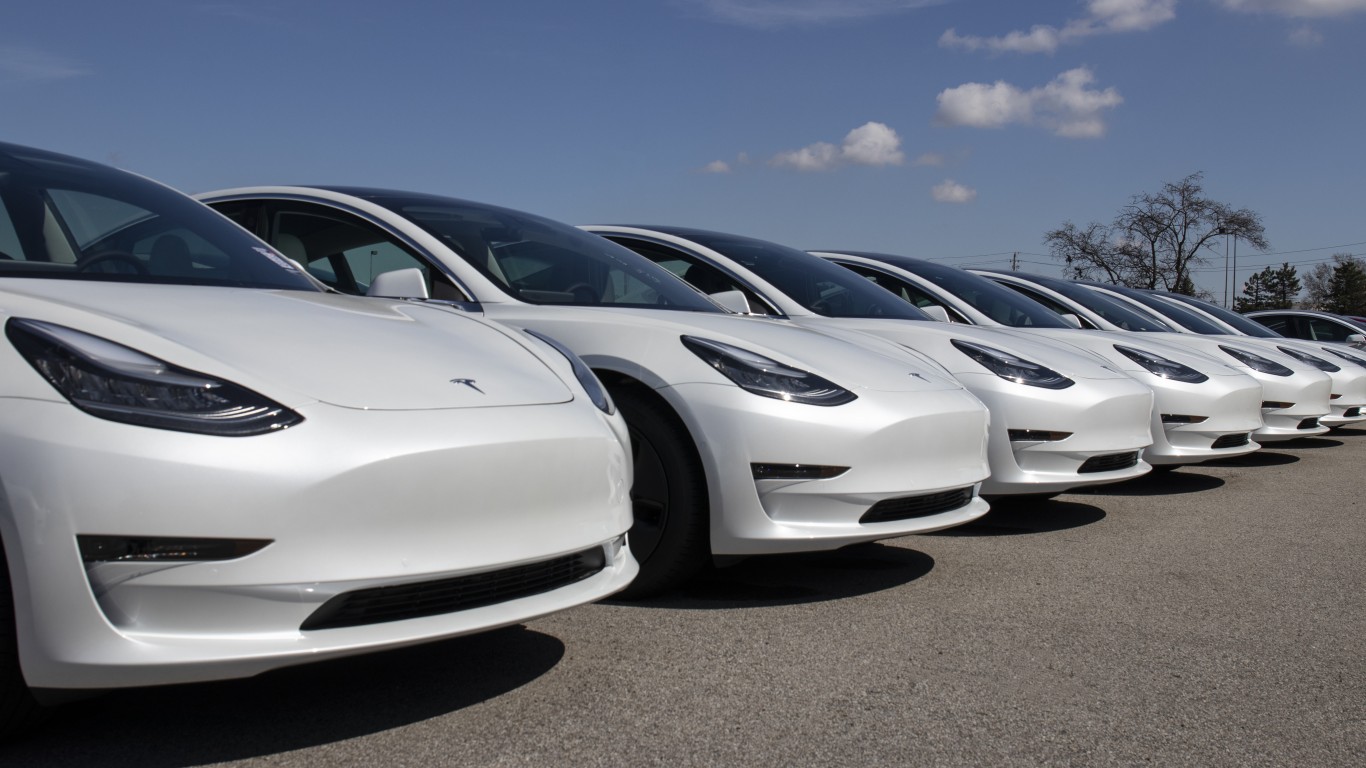Investing
Tesla, Rivian Soar as Deliveries Higher Than Estimated for Q2

Published:
Last Updated:

On Sunday, Tesla published its latest quarterly results, showing the manufacture of 479,700 electric vehicles. The EV bulk consisted of Model 3/Y, while Model S/X accounted for only 4% of the production.
For both models, Tesla delivered 466,140 EVs in total. This is above-average performance as Wall Street expected the delivery range to be up to 447,000 cars. Bernstein analyst Toni Sacconaghi noted that this was Tesla’s sharpest quarterly estimate-trouncing since Q4 2021.
Mirroring the good news, Tesla (TSLA) stock bounced significantly on Monday’s opening, going up 8%, from $261 to $282 per share. Year-to-date, TSLA has now clocked 160% gains. Investors should note that Tesla has manufactured more cars than delivered for the fifth consecutive quarter.
This shows that EV demand is somewhat struggling. After all, a 2019 CarGurus survey revealed that 67% of would-be buyers cite high upfront costs as the biggest adoption obstacle. With inflationary pressures since this would have only increased.
However, increasing the capacity to deliver EVs is a positive investor signal if global EV demand trends accompany it. In particular, if Tesla’s legacy competition is lagging.
Since Tesla became a popular brand, it has been the target of sustainability speculation on two fronts:
So far, such predictions have fallen flat. At this point, mass adoption seems inevitable for the simple reason of governments/states introducing dates to end gas-powered car sales. The EU set this milestone to 2035, the same as California.
Regarding the second concern, Volkswagen Group globally delivered only 141,000 battery EVs in Q1 2023. Likewise, Toyota Motor Europe sold 291,721 EVs in the same quarter, a 3% year-over-year increase. This puts Tesla in the top global EV manufacturer range but not as the leader.
At the top is still the Chinese giant BYD, accounting for hybrid and fully electric vehicles.
As far as Tesla’s domestic competition, the closest is Rivian Automotive. The California-based startup also beat estimated car deliveries in Q2 at 12,640 vs. 11,000. Accordingly, Rivian (RIVN) stock surged by 11.5% on Monday. However, year-to-date, RIVN is nowhere near as performant as TSLA, at only 8.7%.
The company received some boost after adopting Tesla’s NACS charging solution, but the company is still facing supply chain issues. In the short term, Rivian seeks to reach an annual 50,000 EVs target after receiving $1.5 billion in tax incentives from Georgia.
By 2026, the company is expected to manufacture up to 400,000 EVs annually.
On Monday, Morgan Stanly released its update on Tesla’s forecast. Given the 4% delivery beat, the annual FY23 production estimate is closer to 1.9 million units than the current 1.82 million.
Tesla’s price-cutting strategy seems to have worked, as it responded to the government’s tightening of federal tax credit requirements, having been reduced from $7,500 to $3,3750 (for Model 3 rear-wheel drive) in April.
Despite the lower profits from price cuts, Morgan Stanley expects Tesla’s gross margin for FY23 to increase to 18.5% (from 18.4%) due to higher volume. The base TSLA price target remains at $250 per share.
In the worst bear case, the target is $90 if the Tesla production volume is assumed to be at 5.5 million by 2030. Stanley’s bull case valuation is $450 if Tesla manages to up its production capacity to 10 million by the same year.
This article originally appeared on The Tokenist
Thank you for reading! Have some feedback for us?
Contact the 24/7 Wall St. editorial team.